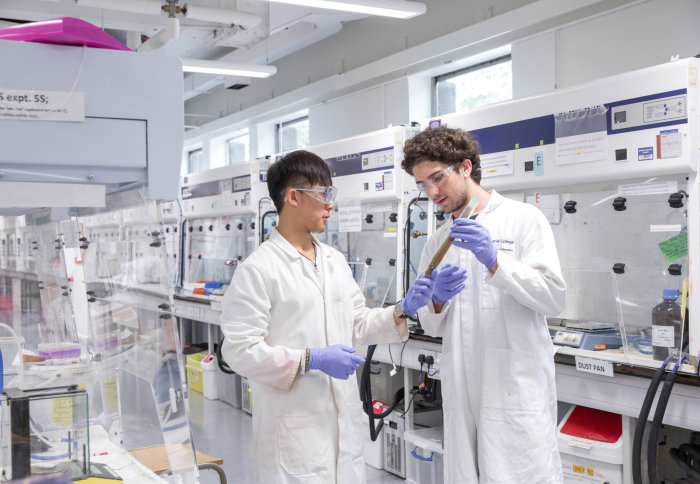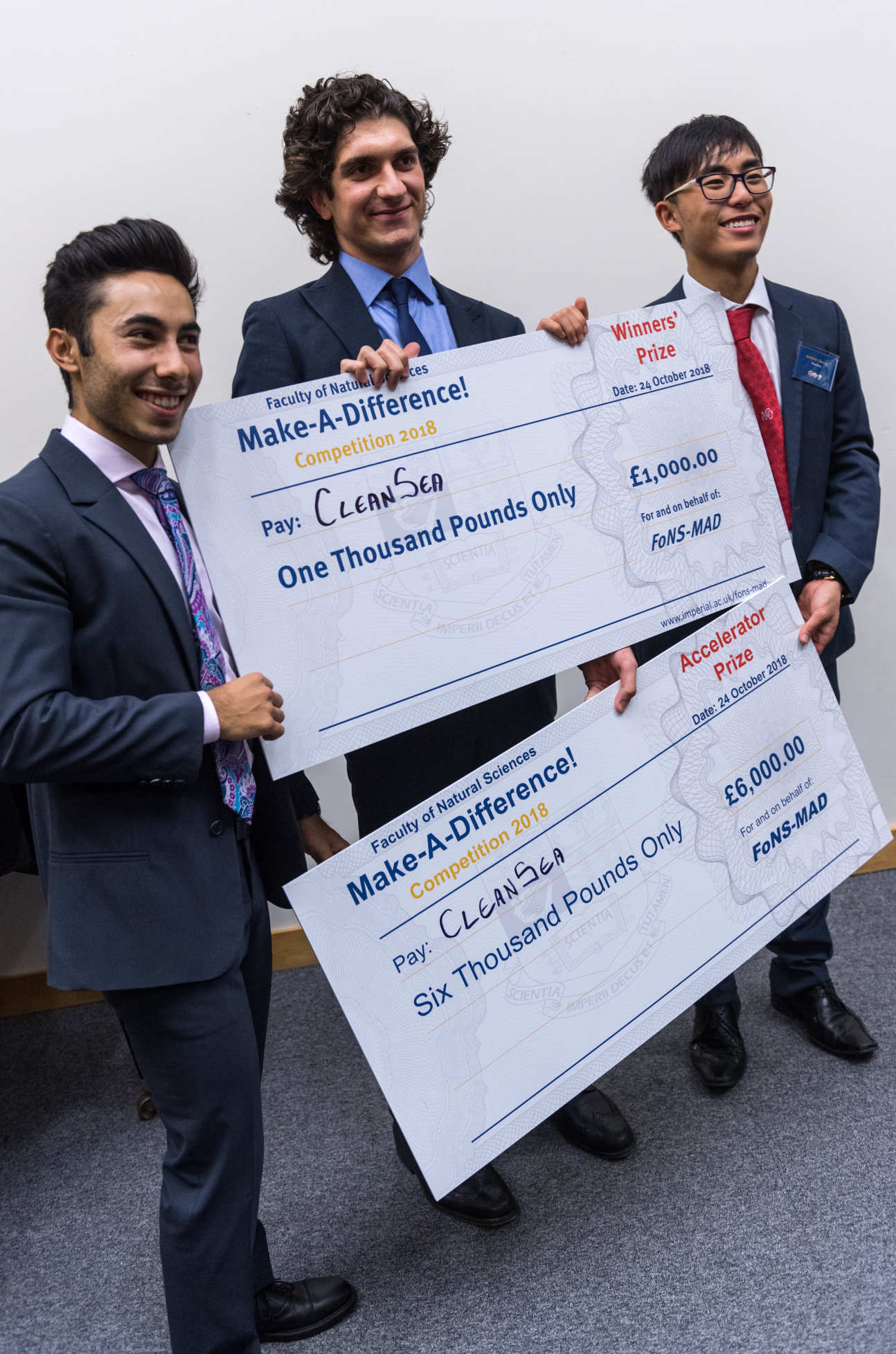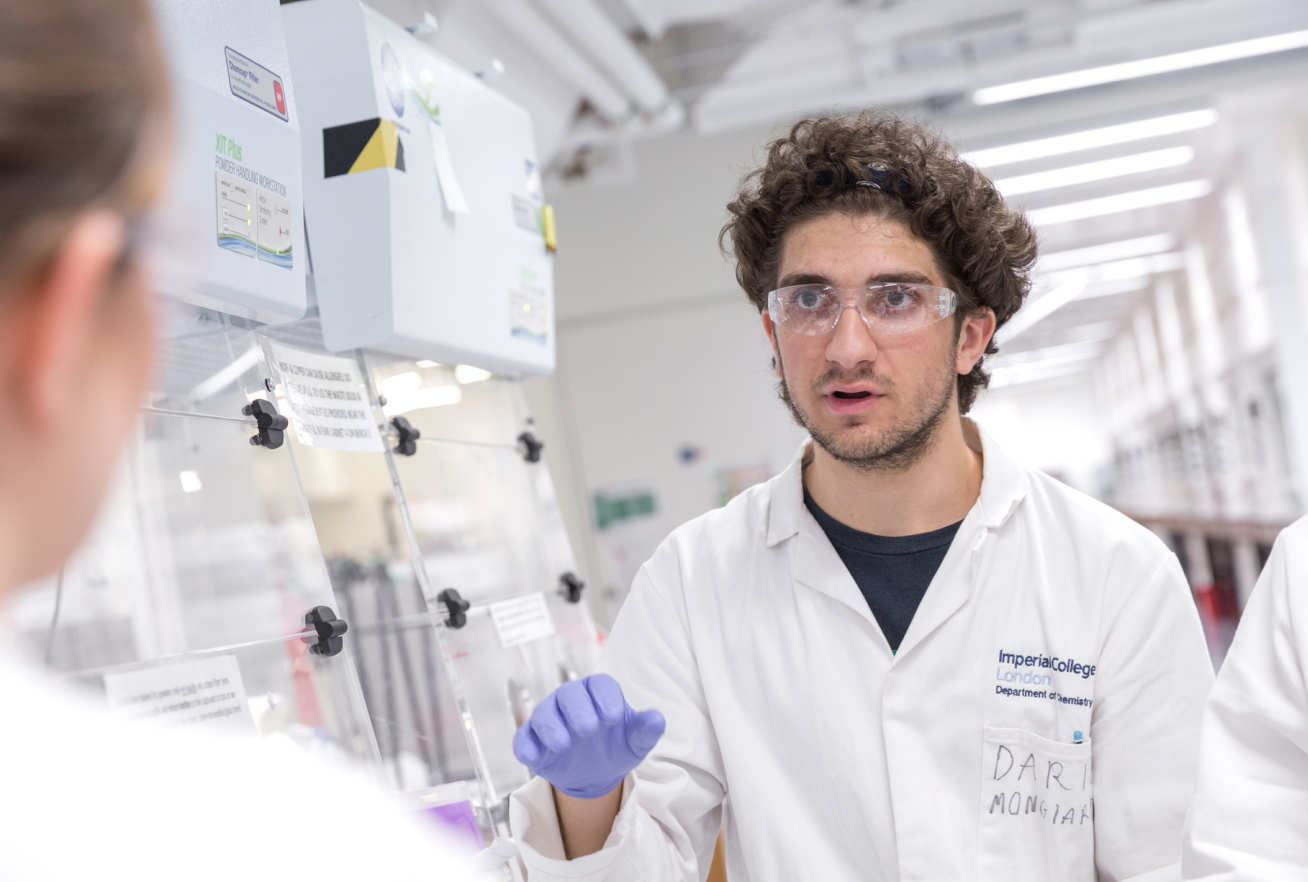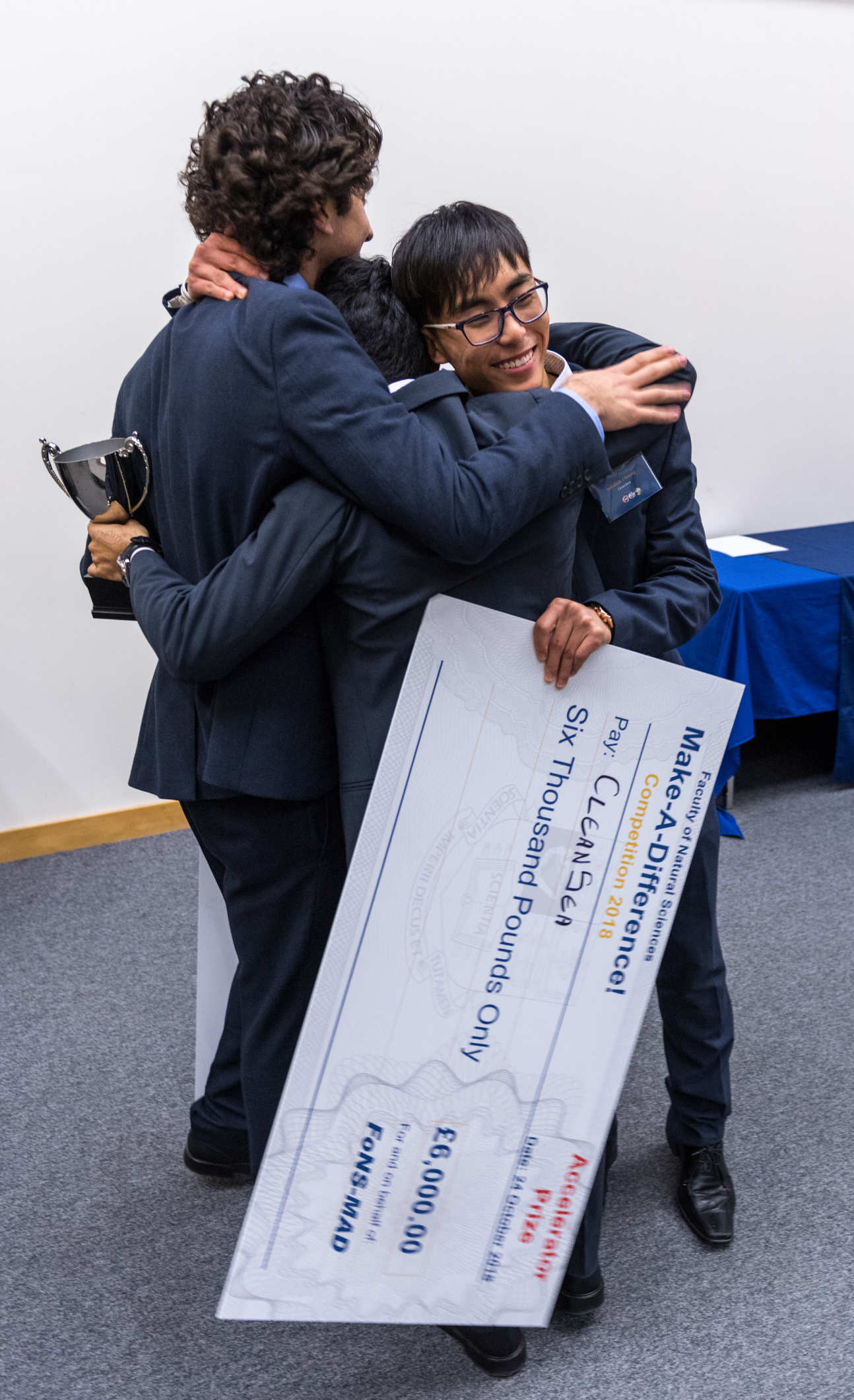Student team wins Imperial competition for technology to tackle ocean plastic

Jedidiah Cheung and Dario Mongiardi from CleanSea
A team of undergraduate students have developed a technology that could filter hazardous microplastics from wastewater before they enter the ocean.
Team CleanSea claimed the £1000 top prize in the Faculty of Natural Sciences Make a Difference Competition for their idea, as well as the £6000 Accelerator Prize to help them develop their idea further.
 The team are developing a compound that could be introduced to filtration systems at wastewater treatment plants to attract and trap microplastics and prevent them from entering the environment.
The team are developing a compound that could be introduced to filtration systems at wastewater treatment plants to attract and trap microplastics and prevent them from entering the environment.
Microplastics are tiny pieces of plastic debris that come from a variety of sources, including broken-down plastic waste, synthetic fibres and beads found in personal hygiene products.
These tiny fragments of plastic pass through water filtration systems at wastewater treatment plants, ultimately entering the ocean and contaminating the ecosystem. There are concerns that microplastics may be harmful to human health if they enter the food chain.
Ambitious ideas
Team member Dario Mongiardi, from the Department of Chemistry at Imperial, said: “We were reading more and more news articles about the dangers of microplastics and the effects that they are having on marine life, and knew that we wanted to do something to help tackle this.

“After discounting several very ambitious ideas to remove the plastics from the sea itself, we concluded that we needed to target the problem at its source – the wastewater treatment plants.”
The team focused on developing a low cost solution that would be easy to integrate into existing infrastructure, Dario explained: “We know from talking to some of the wastewater treatment plants that anything expensive or which requires extensive retrofitting simply won’t be taken up. So we want to make our solution as cheap and unobtrusive as possible.”
Unique opportunity
 The Faculty of Natural Sciences Make-A-Difference competition challenges undergraduate students to develop low-cost technology with a positive social impact. Four finalists are given lab space, funding, and guidance from academic mentors to develop their idea into a proof-of-concept prototype over the course of eight weeks, before pitching their idea to a panel of judges in the competition final.
The Faculty of Natural Sciences Make-A-Difference competition challenges undergraduate students to develop low-cost technology with a positive social impact. Four finalists are given lab space, funding, and guidance from academic mentors to develop their idea into a proof-of-concept prototype over the course of eight weeks, before pitching their idea to a panel of judges in the competition final.
Speaking about the competition, Dario said: “As undergraduate students, it has been a fantastic opportunity to be given this level of autonomy and scope to pursue our own ideas. It has allowed us to take this project in the direction we want, explore different possibilities, and change our minds when something isn’t working. To have our own lab space, and the support of academics to draw on, has been absolutely invaluable.”
The team are now hoping to develop a more scalable prototype and to work with wastewater treatment plants to test their product.
CleanSea includes Dario Mongiardi (Chemistry), Jedidiah Cheung (Life Sciences) and Riccardo Rocco Pierre (Chemistry).
Article text (excluding photos or graphics) © Imperial College London.
Photos and graphics subject to third party copyright used with permission or © Imperial College London.
Reporter
Deborah Evanson
Communications Division